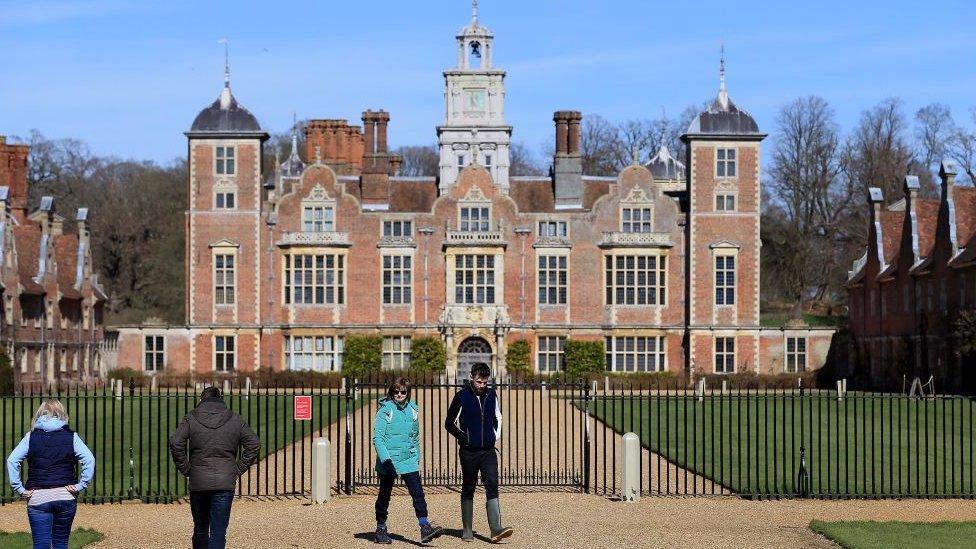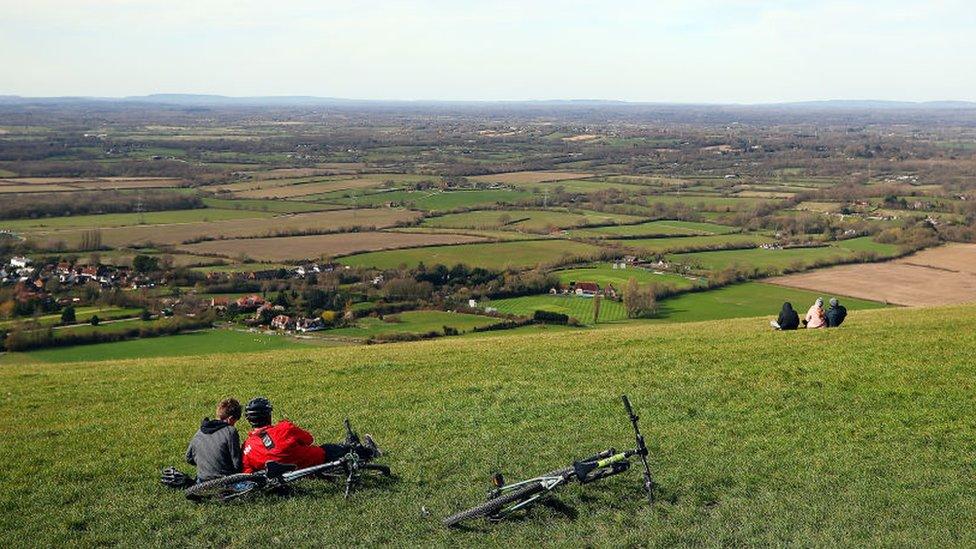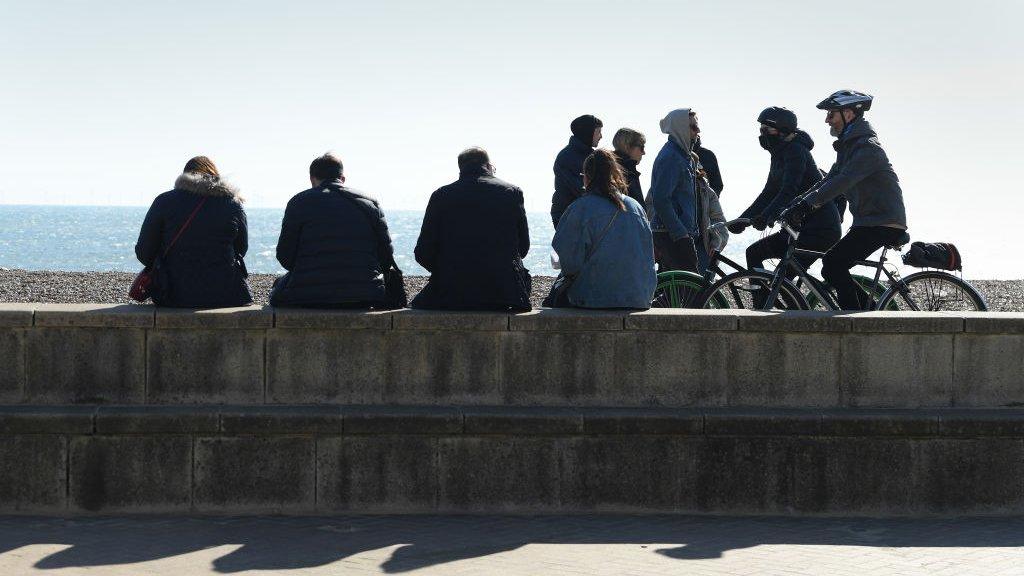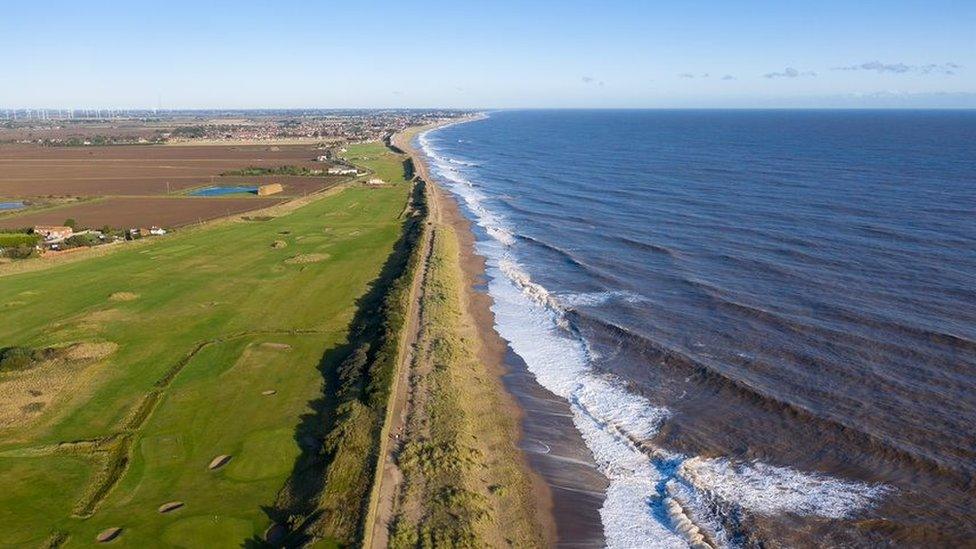Coronavirus: National Trust 'faces £200m losses this year'
- Published

The National Trust has closed its houses, such as Blickling Hall and Estate, to visitors during the coronavirus pandemic
The National Trust has warned it could lose up to £200m this year following the coronavirus outbreak - putting some of its key projects at risk.
The conservation charity has already paused work to clean rivers, prevent upland flooding and improve soil.
It has called on government to offer the same financial support to nature, wildlife and environmental groups that it has to other businesses.
The trust says the lockdown has shown the value of access to green space.
The National Trust, which is the UK's largest conservation charity, looks after more than 300 historic houses and almost 800 miles of coastline across England, Wales and Northern Ireland.
Writing in the Daily Telegraph, its director Hilary McGrady urged ministers to use the recovery from the virus to prioritise "green growth" and carbon reduction.
The trust, which marks its 125th anniversary this year, has closed its gated gardens and parks as well as its houses, cafes and shops to help prevent the spread of coronavirus.
At the end of March, the conservation charity was also forced to close all of its car parks.

AVOIDING CONTACT: The rules on self-isolation and exercise
HOPE AND LOSS: Your coronavirus stories
LOOK-UP TOOL: Check cases in your area
TESTING: Can I get tested for coronavirus?

Ms McGrady said the coronavirus lockdown in the UK had "clearly shown" that people "want and need access to nature-rich green space near where they live".
But she said the sharp drop in revenue faced by the charity has already led to the pausing of key environmental programmes like cleaning rivers, flood prevention and soil improvement.
Ms McGrady said that the trust's plan to plant 20 million trees to tackle climate change and create green areas for people near towns and cities "must not go the same way".
The trust has also committed to becoming carbon net zero by 2030.
"[Business Secretary] Alok Sharma has written to retail and manufacturing businesses to thank them for their efforts and set out a programme of support," Ms McGrady said.
"Ministers now urgently need to address nature, wildlife and environmental organisations with an immediate offer of support, and set out how the sector will contribute towards its green recovery plan."

Ms McGrady added: "On a practical level, this means urgent and more creative solutions to climate change.
"More trees and naturalised rivers can help us deal better with the devastating [...] flooding experienced by large sections of the country this year - a problem that will not go away.
"And a rapid shift to farming that regenerates our natural environment, improves biodiversity and captures and stores carbon remains one of our most urgent challenges."
She called for a green economic recovery plan, saying spending should reduce carbon emissions and boost public health "through clean air".
Ms McGrady also stressed the importance of continuing the government's 25-year plan to improve the environment, external within a generation, and how its delivery depends on the support of conservation charities and green businesses and social enterprises.
- Published1 May 2020
- Published27 March 2020

- Published6 April 2020
